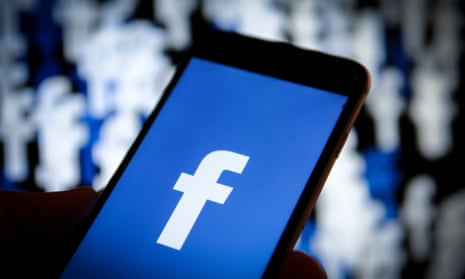In the first decade of the 20th century, Standard Oil was as mighty as the tech giants of Silicon Valley are today. The company had grown from a single refinery in Cleveland in 1863 to produce 87% of all US refined oil output. In 1911, the supreme court decided that Standard Oil was in breach of anti-trust legislation passed by Congress and ordered that the company be broken up.
Even before the data mining revelations that have engulfed Facebook, there was pressure in the US for similar action to be taken against the social media networking site and two other globally dominant companies – Google and Amazon – that have come from nowhere in the past two decades.
The argument goes like this. Data is as vital to the modern digital economy as oil was a century ago. The tech giants have the same sort of monopoly power that Standard Oil once had (Google and Facebook accounted for two-thirds of online advertising spending in the US last year and Amazon was responsible for 75% of online book sales). Mark Zuckerberg might wear chinos rather than the top hat sported by Rockefeller but a robber baron is a robber baron. It is time for anti-trust legislation to be used to break up Facebook, Google and Amazon.
The charge sheet is a long one: the tech giants are exploiting their monopoly power to stifle competition; they are spreading fake news; their fantastically rich owners portray themselves as right-on yet go to a great deal of trouble to minimise their corporate tax bills; they are ripping the heart out of communities through the closure of bricks-and-mortar retailers. To the list can now be added (in Facebook’s case) the harvesting of the personal data of 50 million Americans and its use for political purposes.
No question, Big Tech is more vulnerable to a backlash from Washington than it has ever been. Companies have outgrown management systems that were not designed for systemically important businesses and have used their market power to gobble up rivals. It is this charge – that the disruptive startup companies of yesteryear are today’s anti-capitalists – that creates the biggest risk of anti-trust action.
TimelineBig oil and the US government
Show
Standard Oil’s monopoly is broken up by the US supreme court. The trust which had been set up by John D Rockefeller in 1882, had gained control of nearly 90% of US oil production.
The US joins the first world war and supplies allied forces with oil. President Woodrow Wilson appoints multiple oil executives to war-effort committees and nationalises the railways.
Brought together by the war, oil executives form a trade body, the American Petroleum Institute (API) in 1919. Ten years later, another trade association, the Independent Petroleum Association of America (IPAA) is formed to represent smaller companies.
During the second world war, the US government worked closely with the oil industry, putting a federal investigation into its monopolistic practices on hold. A peacetime version of a wartime committee becomes the National Petroleum Council, an advisory committee that exists today.
API hosts renowned nuclear physicist Edward Teller at a conference at Columbia University, where he warns of impending global warming.
Lyndon B Johnson is the first US president to publicly acknowledge climate change, calling it a serious global threat during a speech.
Scientists at the Stanford Research Institute deliver reports to API, warning of global warming induced by CO2 emissions from fossil fuels.
President Nixon signs an executive order creating the US Environmental Protection Agency (EPA).
Exxon starts an internal climate research programme on carbon dioxide.
The EPA relaxes the standard for ozone, which contributes to smog. The move angers environmentalists and industry alike. API sues the agency.
Nasa scientist James E Hansen testifies before Congress that the planet is warming because of carbon dioxide and other greenhouse gases from fossil fuels.
The Kyoto protocol treaty is signed. Countries pledge to reduce greenhouse gases and recognise the scientific consensus that global warming is occurring and is likely caused by fossil fuel emissions.
Some 195 countries back the Paris climate agreement, pledging efforts to reduce emissions and curb global warming.
President Trump announces the US exit from the Paris climate agreement, citing industry-hired economists that call the accord a bad deal for US businesses. Supporting the move is Scott Pruitt, a climate-change sceptic, who Trump appointed to head the EPA.
Those who have Facebook, Google and Amazon in their sights can draw on Adam Smith for support. In the bible of modern capitalism, the Wealth of Nations, Smith said: “To widen the market may frequently be agreeable enough to the interest of the public; but to narrow the competition must always be against it.” Excessive market power, in other words, is bad because it thwarts progress. Old established businesses can see off potential rivals even though the new entrants might have new and better ways of doing things.
This concept, that Facebook et al are anti-capitalist, explains why the pressure for anti-trust action against them is coming from both right and left – from Steve Bannon, Donald Trump’s former chief strategist, as well as from the leading Democrat Elizabeth Warren.
After all, it’s said, much of the innovation that blossomed in Silicon Valley was the result of the breakup of the telephone company AT&T in 1982. AT&T saw off challengers by deciding what equipment could be used on its national network: Google does the same by using algorithms to decide what comes up on an internet search. Without government action, there was no real prospect of AT&T’s stranglehold being broken and the same applies today given the market dominance of the big tech giants.
The reality is that breaking up Facebook, Google and Amazon would not be as simple as their critics think. America’s anti-trust legislation is tightly defined and there is no provision for action simply because a company is deemed to be too big. What counts is whether size is being exploited to damage consumer interests.
That’s going to be tricky to prove. Consumers get Google and Facebook for free, while Amazon offers books – and an array of other goods – at a discount. Nor can it be said the companies are failing to invest in new products: all three companies devote an impressive share of their turnover to R&D.
Actually, of course, consumers are not getting Google and Facebook for free. They don’t have to part with hard cash but they have to accept that their online activities will be constantly monitored so that advertisers – commercial or political – can tailor ads personally for them. People are now waking up to the terms of this Faustian bargain, which is why there will be calls for a change in US competition policy to make anti-trust action easier to prosecute.
This would require an ideological shift. Americans think the reason they have a Facebook, a Google and an Amazon and the Europeans don’t is that they have a more relaxed attitude towards companies growing big and powerful. The US sees winner-takes-all markets as the law of the capitalist jungle; the EU sees them as an intrinsic threat to consumers.
A twin-track approach – tougher regulation of Big Tech with the threat of anti-trust action if it doesn’t comply – looks likelier than an immediate recourse to breakup. There are echoes here of the financial crash of a decade ago. Back then, there were calls for a new Glass Steagall act to break up the banks into retail and investment arms, as was the case from the 1930s to the 1990s. It didn’t happen. The banks expressed regret and then used their considerable lobbying power to head off or water down the threat of radical reform. Politicians talked a lot tougher than they eventually acted. They should be careful not to make the same mistake again.

